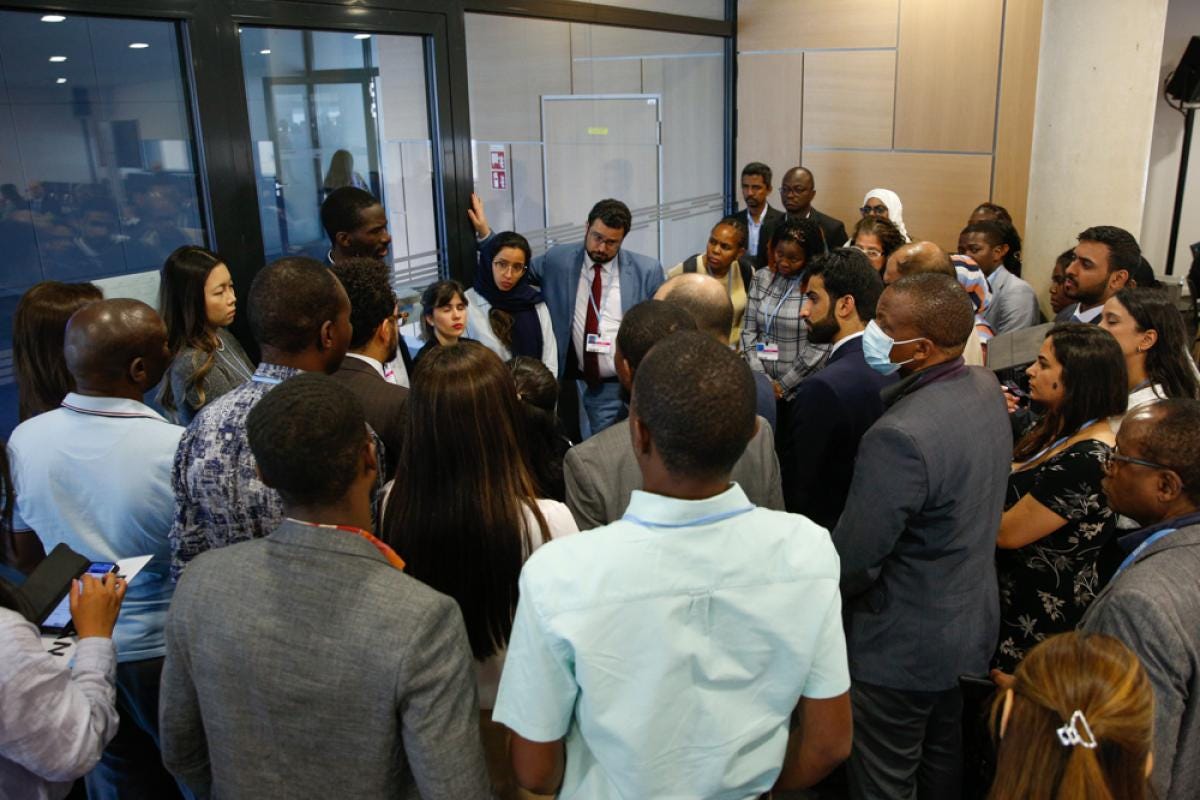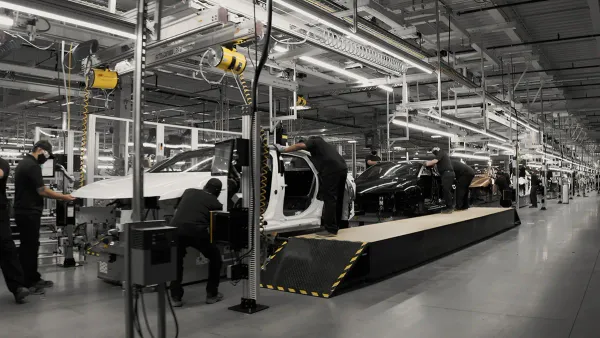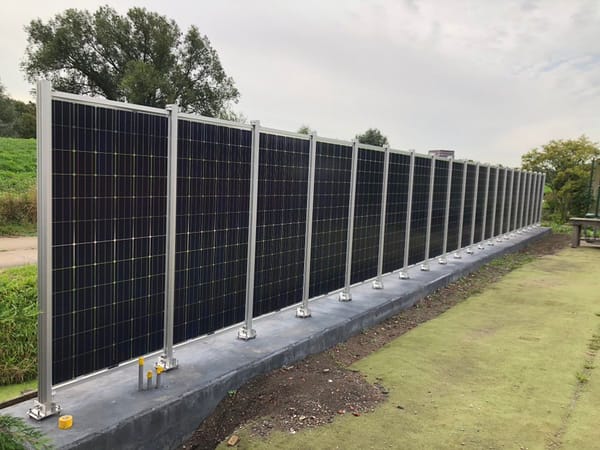Observations about the climate process from the newbie
Good Afternoon!
Over the weekend I plowed through a stack of books on climate politics (list is at the bottom) and it’s gotten me thinking about what I’ve observed so far. Today, I’m adding this additional entry, but tomorrow I’ll have insight into the Loss and Damage Fund negotiations concluded over the weekend. If you’re here for the climate news and not the intellectual navel gazing, feel free to skip the rest. I’ll see you again tomorrow.
-Mike

In case you’re just tuning in, the basic project of Heat Rising is to view climate negotiations – and the global climate improvement infrastructure – through a political lens. I’ve practiced this perspective almost my entire life, from my work founding and operating a political news subscription service, to working in Congress, to the time my high school’s graduating seniors named me, a sophomore, “Most likely to become Machiavelli.”
Politics, in my view, is the lifeblood of human interaction. It enables all discussion, decision making, and communication of disparate viewpoints. Sometimes politics is toxic, but most of the time it just is, flowing in the background as we humans figure out who gets what, when, and under what circumstances.
Decades ago I participated in policy discussions and briefings on the U.S.’s nascent climate policy, as a policy staffer at the Department of Energy, just as the COP climate meeting process was beginning. While many of today’s issues are familiar, the details are not, and since 2001 a giant political and logistical infrastructure has grown up around climate negotiations. So, I’ve been spending my time reading, asking questions, and listening, looking for just about every hint of information I can get before I head off to Dubai for COP28, the next round of climate negotiations.
The point of the trip is to test a theory: Climate negotiations are no longer strict diplomacy between nations, they have become a political and legislative process.
My reading and listening has been supportive of my theory…so far. Still, I remain hesitant because I’ve had fewer than a dozen substantive conversations with experts, and experience tells me that often it takes just one insightful discussion to tear the scales from my eyes. I am hoping that my time in Dubai will either dash my theory to bits, or give me enough supportive experience that I can say, “Yes, this is definitely true.”
In the meantime, I’ve had some other observations about the climate process. Please, sit with me for a bit as I work through them.
- The dominant narratives about climate are either about morals or science. Largely left out are financial and political narratives.
Finance and politics are boring, generally unmotivating, until you have to deal with the reality of a thing. So much of what I’ve found from advocacy organizations, policy shops, and even political leaders focuses on the scientific proof of the risks of climate change, or the moral detriment of damaging our planet. But what about the dollars and cents costs?
This sort of information is hard to acquire but speaks to those without a moral stake in climate change. Now, I admit I have not done a deep literature search, but the fact that I have to look hard for it proves my point: We as a people need to understand the cost and scope of what needs to be done to fix climate, and the potential financial cost if we don’t.
Leading out of that, we should be discussing the potential political trade offs various groups need to make, or will be making to either ensure climate change is averted, or if it is. For instance, there’s lots of talk about how oil states resist decarbonization. But what outcomes are we offering to countries like Saudi Arabia and Russia if we eliminate their main source of income? What will happen to geopolitics as a result? This very serious challenge has attracted almost no real discussion.
On negotiations there are two, opposing perspectives.
It’s a pledge drive. Without enforcement mechanisms, everything is meaningless. The only true work is done on a national basis.
It’s a laddering up process. Through a gradual set of agreements, you get to something more meaningful. International pressure and global market forces add to momentum.
Everyone is one or the other when it comes to this topic, there is no middle ground. I find that if you can identify which of the two a person is, you can accurately predict whether they believe there will be any meaningful progress in negotiations and whether they believe their country should be engaged in negotiations at all.
- Scientists are more pessimistic than they are willing to put in words; Risk assessment and scientific objectivity are not the same or compatible.
Although it has been decades since I spoke to a climate scientist at length, I found this to be true in 2000, and I’ve read multiple accounts of its truth from others. Through their entire careers scientists are incented to be 100% accurate, and to publish inaccuracy is to invite a career-ending death sentence. This attitude conflicts with risk assessment, which relies on probability, rather than accuracy. Politicians and the interested public are more interested in knowing the probability of what could happen to our climate, while scientists are generally only sharing a much narrower band of certainty. The result is, things could turn out much worse than we, the somewhat informed public, can imagine.
- Scientists and activists over focus on leaders and their failure to act. Grassroots motivation gets some praise but is not emphasized.
This is a general observation with little specific evidence, yet so much of the writing and protests I encounter from scientists and activists seem to completely miss the important role national citizens play in our climate crisis. The basis of every leader’s political decision is: How far can I go before enough citizens get upset to stop me? This is a consideration in authoritarian regimes as much as representative democracies, since authoritarians need legitimacy to issue commands.
While I’m not expecting protests in Beijing, it would be valuable to see more of them in Washington, Kinshasa, Sydney, and Mexico City. Generally, I think leaders are responding to the lack of broad, consistent grassroots concern about climate. After this past year’s Canadian fire smoke, you’d think there would have been climate protests in North America, but it didn’t happen. That’s the only way I think significant change will occur.
- The 1992 designations of developing v. industrial nations is increasingly a stumbling block. The list of developing countries include China, Saudi Arabia, and South Korea.
The founding document of climate negotiations, 1992’s United Nations Framework Convention on Climate Change (UNFCCC) includes lists of countries at the end. The important list, Annex I, lists 39 industrialized countries, everyone else is considered “developing”. Since 1992, a new group of middle-income countries has emerged, such as the “Asian Tigers” like Singapore and South Korea, BRICS countries, (Brazil, India, China, South America), and the growth of the Gulf oil states, like Qatar and Saudi Arabia.
In the UNFCCC and 2015’s Paris Agreement, Annex I countries are accorded additional “responsibility” to make deep emissions cuts and finance developing countries’ climate mitigation. Now, when inking new agreements, many often-called “middle income” duck their responsibility, and claim a need for special treatment. China is especially guilty of this behavior, crowing about its booming economy one moment, and crying about the vast number of poor citizens the next.
- Climate is no longer just about emissions, it’s now about money.
This year’s fight over the Loss and Damage fund as well as developing countries’ demands to link loan reform to climate mitigation efforts is proof positive of this change. Emissions commitments are made with the full knowledge that you can fudge the numbers in various ways in the end. Today’s negotiations are becoming about how much cold, hard cash will Annex I countries put into assisting developing countries. Those numbers are much harder to fudge, and as a result, I think the nature of climate negotiations are changing.
- Because it is the biggest oil producer, the United States is less a leader than an impediment. The U.S. and China are the Lowest Common Denominators of climate negotiations.
This was a reality twenty years ago, as much as it is today. Although the U.S. had not experienced the oil production fracking boom it is living through today, the U.S. was the biggest oil consumer then, as it is now. Back then China was the second largest carbon emitter, now it’s number one, behind the U.S.
Basically, as long as the U.S. or China are against a thing, it won’t happen in climate negotiations. There are plenty of other countries that can kill a measure, but the dominating presences are the U.S. and China, and so I call them the Lowest Common Denominators. Everything falls to their level – and clearly much of the world is frustrated with that fact.
You made it to the end. Of course you’ve heard the “new” Beatles song, “Now and Then”. This review of the song and how it was made is fascinating.





